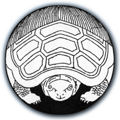“A masterful meditation on consumer culture . . . This novel’s meditative pacing perfectly suits its open-hearted contemplation. The book’s self-awareness allows it to comically hedge and tiptoe, to digress into diatribes into the ‘false dichotomies and hegemonic hierarchies of materialist colonizers’ only to catch itself and sheepishly apologize: ‘Sorry. That turned into a rant. No reader likes a rant. As a book, we should know better.’ The Book of Form and Emptiness is concerned foremost with the outsiders in our world, the ones who hear voices, who are friendless, who fall into addiction and self-harm. It’s concerned, too, with the ultimate outsiders, the objects that we produce and discard, produce and discard. It is both profound and fun, a loving indictment of our consumer culture. As the novel asks the reader turning the pages, ‘has it ever occurred to you that books have feelings, too?’”
September 20, 2021
USA Today
Book Review by Eliot Schrefer
